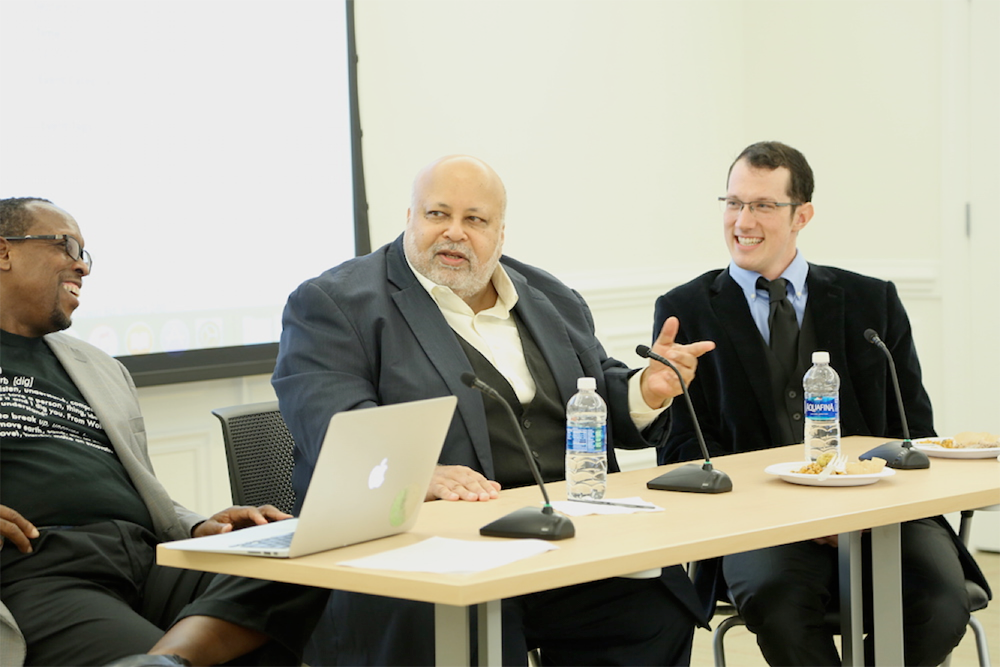Will 'Hamilton' Change How Actors of Color Are Cast?

Theater-goers trying to figure out the surprising success of the musical “Hamilton,” which casts actors of color in the role of the founding fathers, should start with one particular reason, say two leading observers of musical theater: its hip hop soundtrack.
“Broadway musicals are supposed to produce hits. When rock took over it became popular music. When hip hop and rap took over, it became popular but [before Hamilton] there were no hip-hop musicals,” said William Henry Curry, the resident conductor for the NC Symphony.
Jackson Cooper, a local theater critic and an assistant at Chapel Hill’s PlayMakers Repertory Theater, joined Curry for a talk moderated by Mark Anthony Neal, a professor of black popular culture at Duke. The talk kicked off this year’s Wednesdays at the Center, a weekly program held at noon in The Ahmadieh Family Conference Hall in the John Hope Franklin Center.
Cooper said Hamilton’s popularity can be identified to the Obama presidency much in the same way “Camelot” was popular during President Kennedy’s term and “South Pacific” during President Truman’s term.
“Hamilton” isn’t the first musical theater to raise issues of race and casting. Panelists compared the evolution of Gershwin’s “Porgy and Bess,” which raised controversy with its all African-American original cast in 1935.
Curry said it will be interesting to see whether Broadway audiences will continue to embrace contemporary music like hip hop. He also raised some of the complexities of colorblind casting.
“What if we revive the Sound of Music -- can one of the von Trapp children be black? Is that credible?” Curry asked. “Lin-Manuel Miranda (Hamilton’s director) also said he’s ok with women playing male roles. Will that affect the story?”
Panelists said skin color as well as skin lightness could pose an issue for audiences. Neal referenced the backlash against light-skinned actress Zoe Saldana playing singer Nina Simone in a recently released biopic.
“Could you have a light-skinned Iago in Othello?” Curry asked, explaining how in Italy, Iago has historically been played by an actor in blackface. “The otherness is important. He is the only person of color in the play. You can’t take away his otherness or his torment, or you change the story.”
Cooper said that regardless of what happens on Broadway, we should pay attention to the impact on regional theaters, which now have the opportunity to make colorblind casting the norm.
“It should be the norm now, but it isn’t,” he said. “Regional theater has the power to shine right now. You might not find the Hamiltons in regional theaters, but you are more likely to find diverse casting.”
The play swept the major honors, receiving a Pulitzer and several Tony and Grammy Awards. But despite the financial and award-winning success of Hamilton, it’s not clear whether diversity casting will continue to trend on Broadway, creating new opportunities for actors of color.
“We won’t know the legacy of Hamilton for 10 years,” Cooper added. “We have to see the imitators and what comes after it, to know if it was a one-hit wonder.”